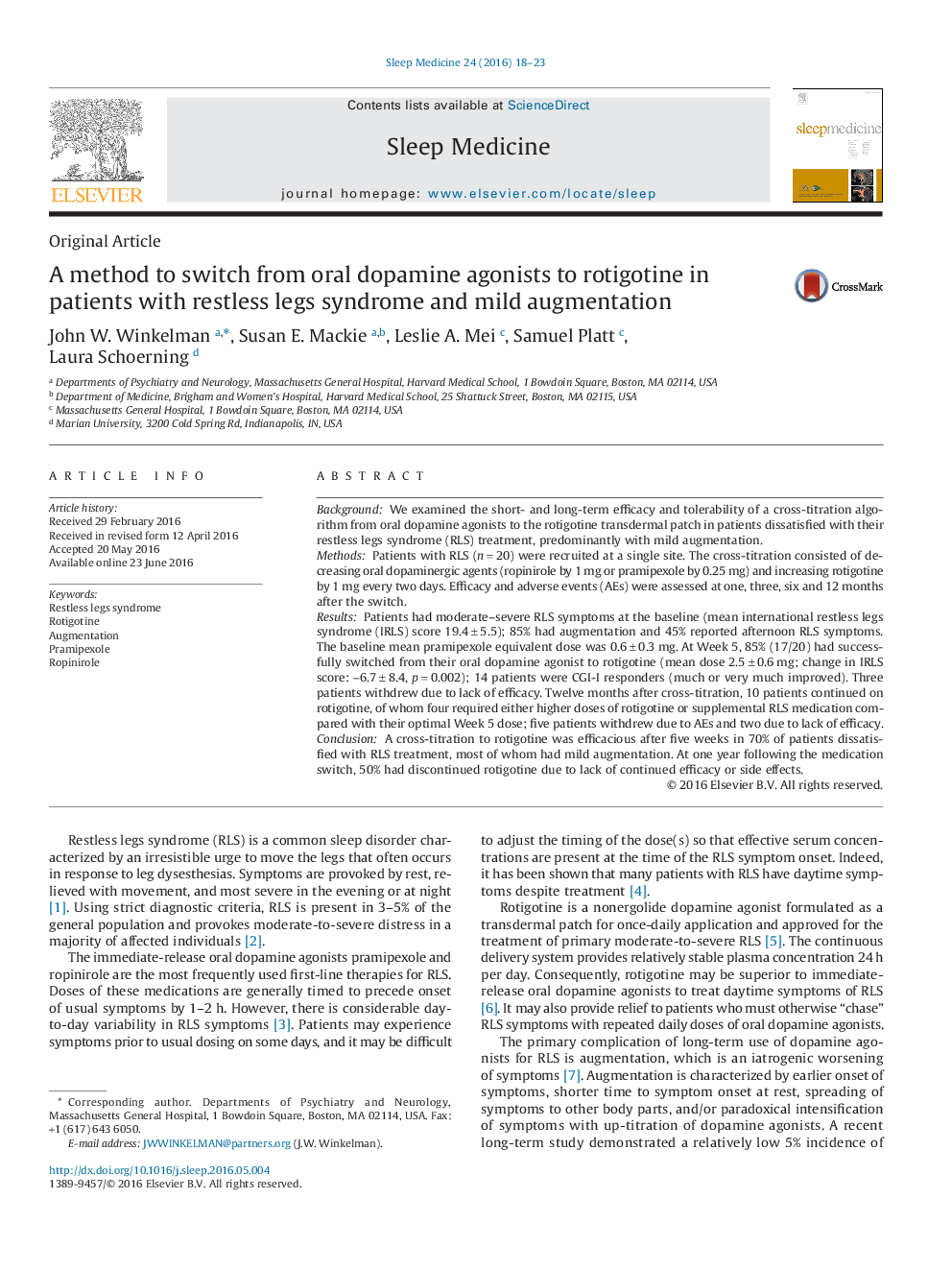| Article ID | Journal | Published Year | Pages | File Type |
|---|---|---|---|---|
| 6060034 | Sleep Medicine | 2016 | 6 Pages |
â¢Augmentation of RLS symptoms with oral dopamine agonists is common.â¢Optimal management of augmentation in such cases is controversial.â¢Cross-titration to rotigotine was successful in 70% of patients with mild augmentation at 5 weeks.â¢However, at one year, 50% discontinued rotigotine due to lack of continued efficacy or side effects.
BackgroundWe examined the short- and long-term efficacy and tolerability of a cross-titration algorithm from oral dopamine agonists to the rotigotine transdermal patch in patients dissatisfied with their restless legs syndrome (RLS) treatment, predominantly with mild augmentation.MethodsPatients with RLS (nâ=â20) were recruited at a single site. The cross-titration consisted of decreasing oral dopaminergic agents (ropinirole by 1âmg or pramipexole by 0.25âmg) and increasing rotigotine by 1âmg every two days. Efficacy and adverse events (AEs) were assessed at one, three, six and 12 months after the switch.ResultsPatients had moderate-severe RLS symptoms at the baseline (mean international restless legs syndrome (IRLS) score 19.4â±â5.5); 85% had augmentation and 45% reported afternoon RLS symptoms. The baseline mean pramipexole equivalent dose was 0.6â±â0.3âmg. At Week 5, 85% (17/20) had successfully switched from their oral dopamine agonist to rotigotine (mean dose 2.5â±â0.6âmg; change in IRLS score: â6.7â±â8.4, pâ=â0.002); 14 patients were CGI-I responders (much or very much improved). Three patients withdrew due to lack of efficacy. Twelve months after cross-titration, 10 patients continued on rotigotine, of whom four required either higher doses of rotigotine or supplemental RLS medication compared with their optimal Week 5 dose; five patients withdrew due to AEs and two due to lack of efficacy.ConclusionA cross-titration to rotigotine was efficacious after five weeks in 70% of patients dissatisfied with RLS treatment, most of whom had mild augmentation. At one year following the medication switch, 50% had discontinued rotigotine due to lack of continued efficacy or side effects.
